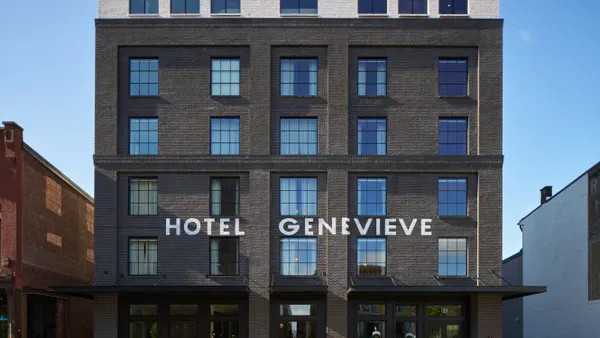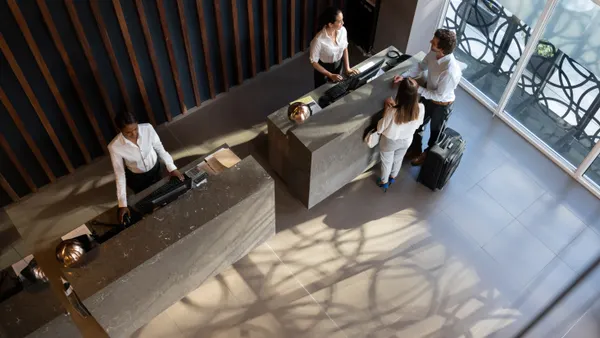Darelyn Pazdel is vice president of workforce inclusion at PRIDE Industries. Opinions are the author’s own.
It's no secret that the hospitality industry faces a persistent labor shortage. A report from the American Hotel and Lodging Association found that 67% of hotel operators are short-staffed, and 12% said they are "severely understaffed," which means the shortage is affecting their ability to operate.
I have a solution for hotels needing help finding and retaining staff. Look outside your traditional talent sources and consider hiring people with disabilities.
The solution
The Grand Hyatt in San Diego has been hiring people with disabilities for kitchen staff for more than a decade. "These associates show up on time every day with smiles on their faces," said Matt Farnsworth, assistant director of food and beverage. "They are happy to be a part of the team and do a great job."
In Alpine, California, Viejas Casino and Resort has been hiring people with disabilities for more than 10 years. Currently, about 20 employees with disabilities provide custodial and laundry services.
At Thunder Valley Casino Resort near Sacramento, California, a team of 30 people with disabilities cleans 10,000 pounds of laundry every day. Thunder Valley previously outsourced the work, and the new team outperforms the previous vendor in quality and cost. Laundry Manager Khawar Quresh is so impressed that he has held up the group's work as a model for other departments.
Supported work groups
The Grand Hyatt, Viejas and Thunder Valley are among hundreds of hotels throughout the country that engage employees with disabilities through supported employment programs working with state agencies and partner organizations.
The model features work groups — state-supported programs that bundle three to four employees and a job coach into one team. The partner agency is the employer of record and takes care of hiring, training, payroll and on-the-job support, relieving the parent company of the management overhead. It’s a low-risk, high-reward model for hotel operators.
Improving retention
Let's talk about retention. The leisure and hospitality industry has the highest turnover rate of any sector: 79%, according to Awardco.
The team model and ongoing coaching built into supported work groups foster camaraderie and job satisfaction — and retention. That's one reason employers report lower absenteeism and turnover with this staffing model.
"They want to work," said Tina Bowman, a job coach who works with the team at the Grand Hyatt. “They love to come in and be on time. When it's time to start, they want to start."
It's no surprise that both the Grand Hyatt and Viejas have long-term employees. Mike has worked at Viejas for 10 years. "I would like to work here at the casino for 10 more years," he said.
Capturing the magic
The enthusiasm that employees with disabilities bring to the workplace is often contagious.
"Everybody loves them," Bowman said of the Grand Hyatt employees.
"The employees bring so much joy to the workplace," said Joel Moore, VP of hotel operations at Thunder Valley. "The level of absenteeism is lower than in other teams. These employees stay longer because they love working here."
An on-ramp to inclusion
Supported work groups provide an on-ramp to help employers get up to speed with an alternative workforce. The presence of coaches and the support offered by partner agencies reduce the uncertainty for employers. Coaches also help educate managers and co-workers about working with people with disabilities and facilitate communication to prevent misunderstandings.
It can take a little time to get the model up and running on site. As with any new employee, it takes some time to find the right people for each role.
Changing lives
Employers who hire people with disabilities also get the satisfaction of changing lives. Employment "means everything to them," said Bowman, "not just financially but mentally and emotionally."
“I love everything about my job,” said Allen, who works in the kitchen at the Grand Hyatt. “I love the people I work for.”
“Providing that purpose is meaningful for their lives and our community,” Farnsworth said.
The biggest difference in hiring work groups of employees with disabilities is positive. I encourage employers needing help to fill frontline roles to consider this workforce.









